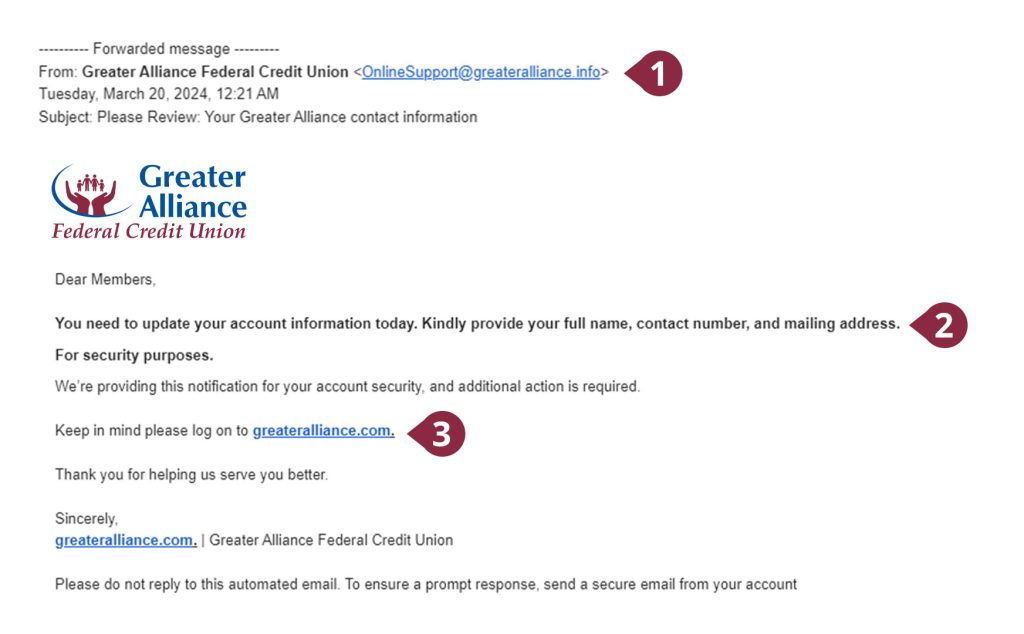3 Simple Steps to Avoid Phishing
Our team at Greater Alliance is dedicated to ensuring the security of your accounts. However, as technology advances, so do the methods of scammers. We also need your help to keep your account safe and protected from scammers.
Phishing involves an email, often using the name and logo of a legitimate company, asking you to click a link and provide account details – which are then used to commit fraud.
SMShing is phishing via text, directing you to follow a link or call to provide sensitive account information.
Vishing is phishing via phone, where the caller (or recording) warns you of the urgent need to confirm sensitive account information or to call a number and provide it.
Here are three things to remember when you receive suspicious emails:
1. Recognize phishing signs
Be cautious of emails or messages that pretend to be from Greater Alliance. When scammers send you fake emails pretending to be from us, they might try to get your passwords or credit card details.

Simple signs of phishing are:
- suspicious email address
- asking for personal information
- urging you to take action
Avoid:
- clicking suspicious links
- downloading attachments from unknown senders
- reaching out to the contact information they provided
- replying to the email
2. Verify message authenticity

Take your time to evaluate emails or messages by verifying the sender’s authenticity. Our official email is info@greateralliance.org.
Scammers may attempt to alter or manipulate the email address by adding or removing letters or numbers to deceive you. You don’t need to memorize our official email; instead, you can always visit our website and compare it with the emails you receive.
If it’s a phone call, remember that even caller IDs can be spoofed. Avoid following instructions from callers, even if they seem urgent. Instead, reach out to us directly through our website or official email.
If possible, don’t answer suspicious calls at all.
3. Let Us Help
Immediately report phishing attempts or suspicious messages to Greater Alliance. We’ll help monitor your account for suspicious activities. We should immediately secure it to avoid receiving similar emails in the future.
Be Vigilant, Protect Your Account
Please remember to keep your account with us secure. Avoid sharing personal information, access codes, and passwords that could help scammers access them without your consent.
Refrain from writing down login information anywhere else or sharing it in social media messages. If you need to jot it down to remember, store it in safe places.
If you’ve been a victim of fraud or received suspicious messages, please contact us immediately.
